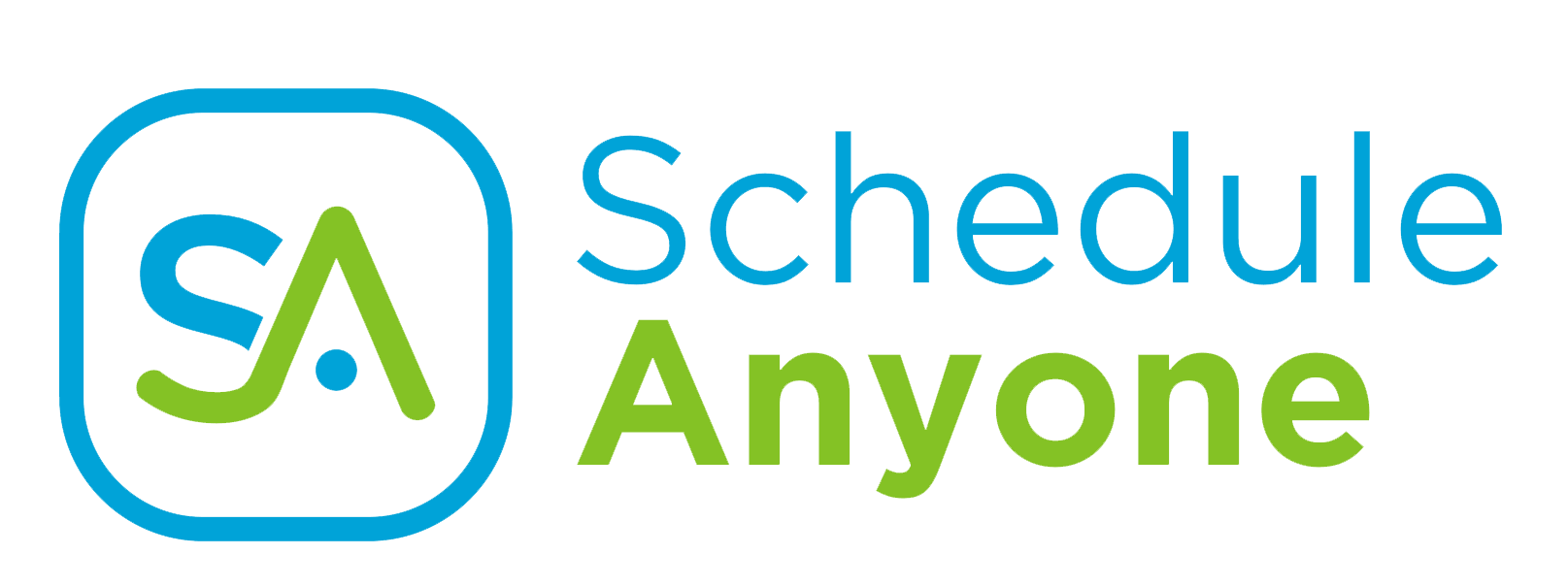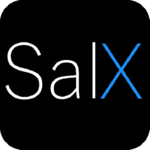Description

Schedule Anyone

Wisor
Comprehensive Overview: Schedule Anyone vs Wisor
As of my last update, "Schedule Anyone" and "Wisor" are tools related to scheduling and business management, but information available on these specific platforms might be limited or evolving. Here's a general overview based on typical tools in this category:
Schedule Anyone:
a) Primary Functions and Target Markets:
-
Primary Functions:
- Online appointment scheduling
- Calendar management
- Automated reminders and notifications
- Client management (CRM features)
- Payment processing integration
- Reporting and analytics
- Staff management and scheduling
-
Target Markets:
- Small to medium-sized businesses
- Service-based businesses like salons, spas, and wellness centers
- Freelancers and independent consultants
b) Market Share and User Base:
- Market share and user base: Schedule Anyone is likely to have a modest user base focused on service industries where appointment scheduling is crucial.
- The tool may not dominate the market compared to larger, more established scheduling platforms but could cater to niche markets effectively.
c) Key Differentiating Factors:
- User interface tailored to service industries
- More affordable pricing plans for small businesses
- Specific features for industry-specific needs (e.g., salon-specific functionalities)
Wisor:
a) Primary Functions and Target Markets:
-
Primary Functions:
- Scheduling and workforce management
- Resource allocation and optimization
- Business intelligence and analytics
- Project management support
- Integration with other enterprise software
-
Target Markets:
- Medium to large enterprises
- Industries needing detailed workforce optimization, like logistics, manufacturing, or large-scale service operations
- Companies seeking advanced analytics in scheduling
b) Market Share and User Base:
- Market share and user base: Wisor may have a significant presence in industries requiring detailed resource management and optimization.
- Its user base could include enterprise-level customers and potentially governmental or large-scale operations.
c) Key Differentiating Factors:
- Advanced resource optimization features
- Integration with other enterprise-level systems
- Focus on analytics-driven decision-making
- Suited for larger organizations with complex scheduling needs
Comparison and Conclusion:
While Schedule Anyone is likely tailored for small to medium service-based businesses with simple scheduling needs, Wisor focuses on larger enterprises with complex resource management requirements. Their market overlap is minimal due to the difference in target audiences and functionalities. Consequently, Schedule Anyone might excel in providing straightforward, user-friendly solutions for small businesses, whereas Wisor offers comprehensive analytics and integration capabilities for large organizations. Market share details would require current industry reports or surveys to be accurate, as these can change with new product developments.
Contact Info

Year founded :
2012
+1 713-864-8088
Not Available
United States
http://www.linkedin.com/company/schedule-anyone

Year founded :
2022
Not Available
Not Available
India
Not Available
Feature Similarity Breakdown: Schedule Anyone, Wisor
As of my last update, detailed comparative analyses of specific niche software like "Schedule Anyone" and "Wisor" might not be readily available in publicly accessible data given the potential obscurity of proprietary software features. However, I can guide you on typical aspects to consider and where to potentially obtain this information. Here's a general approach to evaluate them:
a) Core Features in Common
-
Appointment Scheduling: Both platforms likely offer functionalities for booking and managing appointments, a core aspect for any scheduling software.
-
Calendar Integration: Integration with calendars like Google Calendar or Outlook is a common feature to ensure seamless updates and reminders.
-
Automated Reminders and Notifications: Sending reminders via email or SMS to reduce no-shows and keep clients informed.
-
Client Management: Basic CRM (Customer Relationship Management) tools to track client information and appointment history.
-
Mobile Access: Both might offer mobile apps or responsive web designs for on-the-go scheduling and management.
-
Payment Processing: Ability to handle payments directly through the platform, which can include invoicing and integration with payment gateways.
b) User Interfaces Comparison
Comparing user interfaces typically requires hands-on usage or access to demos/tutorials for each platform. Here's how you might frame this:
-
Design and Usability: Look for which platform offers a more intuitive and aesthetically pleasing interface. Often this is subjective and can depend on individual preferences.
-
Customization: Evaluate the extent to which users can customize their interface and experience based on their personal or business needs.
-
Ease of Navigation: Compare how easily users can move through features and access the tools they need without unnecessary complexity.
-
User Feedback: Check reviews and testimonials that mention specific UI/UX experiences on platforms like Capterra, G2, or Trustpilot.
c) Unique Features
-
Schedule Anyone:
- It might offer specialized features for particular industries such as salon or health services, with specific tools for staff management and resource allocation.
- Advanced analytics and reporting tools tailored to user needs in specific sectors.
-
Wisor:
- Could potentially offer integrated marketing tools, enhancing user engagement and retention strategies.
- May include unique AI-driven scheduling optimization to better allocate resources and manage time effectively.
How to Obtain More Info
- Official Websites and Documentation: Explore each software’s official site for feature lists, case studies, and white papers.
- Third-Party Reviews and Comparisons: Websites like Software Advice or Capterra often include user-submitted reviews and side-by-side software comparisons.
- Trial Versions or Demos: Many SaaS companies provide limited-time trials or demo versions, allowing potential users to explore features firsthand.
- Webinars and Tutorials: These can be excellent resources for understanding how each platform operates and the kind of interface they offer.
By following these steps, you should be able to construct a detailed comparison of these scheduling software tools based on their latest offerings and customer feedback.
Features

Client Management
Analytics and Reporting
Team Coordination
Automated Scheduling

Project Tracking
User Management
Data Analytics
Best Fit Use Cases: Schedule Anyone, Wisor
As of my last update, Schedule Anyone and Wisor are tools that cater to different needs related to scheduling and project management. While I might not have specific details about every feature they offer, I can provide a general idea of the types of businesses or projects they might best serve based on typical functionality of such products.
a) Schedule Anyone
Best Fit Use Cases:
- Businesses with Appointment-Based Services: Schedule Anyone is likely a tool designed for businesses that require detailed scheduling of appointments. This would include salons, spas, medical practices, consulting firms, and any service-oriented business where clients book specific time slots.
- Resource Management: Companies needing efficient resource management, such as equipment rentals or community spaces, may also benefit from robust scheduling features.
- Small to Medium Enterprises (SMEs): Typically, these businesses require easy-to-use interfaces with functionalities tailored to specific appointment types, notifications, and client management.
b) Wisor
Preferred Scenarios:
- Project Management for Complex Projects: Wisor may be favored by firms requiring more sophisticated project management capabilities, such as those in construction, engineering, or IT development, where project timelines, tasks, and workflow need precise management.
- Collaboration Tools for Teams: If Wisor includes advanced collaboration tools, it would be ideal for teams that rely on shared resources and coordination across various departments.
- Large Enterprises or Complex Organizations: Businesses with multiple departments, large teams, or needing robust reporting and analytics might prefer Wisor for its ability to provide an overview and detailed insights into project progress and resource allocation.
d) Catering to Different Industry Verticals or Company Sizes
-
Schedule Anyone:
- Industry Verticals: It could cater to healthcare, customer service, personal care, and other sectors where client interaction scheduling is critical.
- Company Size: Typically more suited to small to medium businesses that do not require extremely complex infrastructure but need a reliable and versatile scheduling solution.
-
Wisor:
- Industry Verticals: It might serve more technical or large-scale industries, such as construction, IT, manufacturing, or corporate project management, where task tracking and resource allocation across extensive projects are necessary.
- Company Size: More appropriate for medium to large enterprises that have multiple ongoing projects and need sophisticated project management tools to maintain efficiency and collaboration across teams.
Both tools are invaluable in their respect, with Schedule Anyone focusing on customer interactions and Wisor potentially offering a broader range of project and resource management capabilities. The choice between them would largely depend on the specific needs of the business, the complexity of their projects, and the size of their operations.
Pricing

Pricing Not Available

Pricing Not Available
Metrics History
Metrics History
Comparing teamSize across companies
Conclusion & Final Verdict: Schedule Anyone vs Wisor
To provide a well-rounded conclusion and final verdict on Schedule Anyone and Wisor, we need to analyze and compare several aspects, such as price, features, ease of use, customer support, and any unique functionalities. Here's a breakdown:
A) Considering all factors, which product offers the best overall value?
- Schedule Anyone: Offers robust scheduling capabilities tailored for businesses requiring detailed appointment setting, customer management, and staff scheduling. It's usually equipped with extensive integrations and customization options, making it ideal for businesses with specific needs.
- Wisor: Known for its intuitive interface and powerful analytics, Wisor might appeal more to businesses seeking actionable insights from their scheduling operations. It's often praised for its ease of use and efficiency.
Overall Value Verdict: If your business prioritizes detailed customization and integration options, Schedule Anyone might provide the best value. However, if ease of use and analytical insights are your main focus, Wisor stands out.
B) Pros and Cons of Each Product
Schedule Anyone
-
Pros:
- Highly customizable with extensive integrations.
- Capable of handling complex scheduling needs.
- Strong customer management tools.
-
Cons:
- Might have a steeper learning curve due to its extensive features.
- Can be more expensive compared to simpler solutions.
Wisor
-
Pros:
- User-friendly interface with a short learning curve.
- Excellent data analytics and reporting features.
- Typically more cost-effective for smaller operations.
-
Cons:
- May lack some customizability and integrations compared to more complex software.
- Could be less suitable for businesses with very specific or intricate scheduling needs.
C) Recommendations for Users Trying to Decide Between Schedule Anyone vs Wisor
-
Assess Your Business Needs: Determine if your operation requires advanced customization and extensive features. If yes, Schedule Anyone might be the better choice. For simpler needs with a focus on analytics, Wisor could be more suitable.
-
Budget Considerations: Consider your budget and evaluate which software provides the features you need without unnecessary expenditure.
-
Trial and Feedback: Make use of free trials or demos offered by both platforms. Involve your team in testing the platforms and gather feedback on their usability and overall impression.
-
Customer Support Evaluation: Consider the quality of customer support available for each product, as this can greatly impact your long-term satisfaction and operational efficiency.
-
Long-Term Goals: Think about your business's growth trajectory and choose a solution that can scale with your needs.
In conclusion, both Schedule Anyone and Wisor offer distinct advantages. The decision should be based on the specific needs and priorities of your business. By evaluating the above aspects carefully, you can choose the product that aligns best with your operational objectives.
Add to compare
Add similar companies



